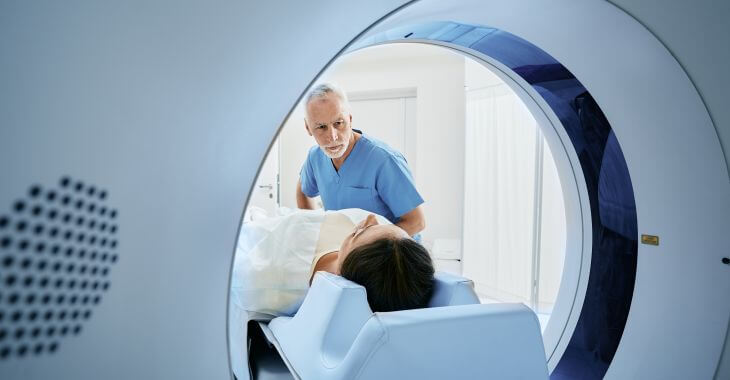Who Needs Bone Density Testing?
One of the best ways to identify the early stages of osteoporosis is through the use of a bone density scan, also referred to as bone mineral density test. This test is non-invasive and measures the density level on small parts of a few bones. If the bone mineral density is low, it is a sign of osteoporosis that can lead to bone loss and a high risk of fractures. Once diagnosed, patients can seek medication and treatment to control their diseases.
High Risk Groups for Osteoporosis
Anyone who is at high risk for osteoporosis should have bone mineral density testing. In most cases, this testing is done at least once every two years. The scan is painless and quick, very similar to receiving an x-ray. The National Osteoporosis Foundation recommends the following high risk groups receive regular bone density testing:
- Women over 65 years of age
- Men over 70 years or age
- Both men and women who have medical conditions that increase their risk of osteoporosis
- Anyone taking medications that cause bone thinning
- Anyone with a history of multiple bone fractures
In many cases, insurance will pay for the bone density scans if you are at risk of osteoporosis, including Medicare, which covers bone density testing for individuals in certain high risk groups. It is always best to check insurance coverage before having a bone density can to ensure that it is a procedure that is covered to eliminate any billing surprises.
Bone mineral density scans can be performed by radiology clinics that have the correct scanning and imaging equipment and personnel that are trained in performing the test.
Posted on behalf of:
Diagnostic Radiology Ultrasound & Breast Center, P.C.
Mount Vernon Medical Center
755 Mount Vernon Highway Northeast #310
Atlanta, GA 30328
(404) 252-3430
The information provided on this website, including text, graphics, images, and other materials, is intended solely for informational purposes and should not be used as a substitute for professional medical advice, diagnosis, or treatment.

)